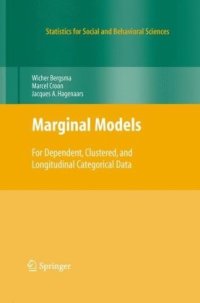
Ebook: Elements of Adaptive Testing
- Genre: Psychology // Pedagogy
- Tags: Statistics for Social Science Behavorial Science Education Public Policy and Law, Assessment Testing and Evaluation, Psychometrics
- Series: Statistics for Social and Behavioral Sciences
- Year: 2010
- Publisher: Springer-Verlag New York
- Edition: 1
- Language: English
- pdf
The arrival of the computer in educational and psychological testing has led to the current popularity of adaptive testing---a testing format in which the computer uses statistical information about the test items to automatically adapt their selection to a real-time update of the test taker’s ability estimate. This book covers such key features of adaptive testing as item selection and ability estimation, adaptive testing with multidimensional abilities, sequencing adaptive test batteries, multistage adaptive testing, item-pool design and maintenance, estimation of item and item-family parameters, item and person fit, as well as adaptive mastery and classification testing. It also shows how these features are used in the daily operations of several large-scale adaptive testing programs.
Wim J. van der Linden is Chief Research Scientist at CTB/McGraw-Hill, Monterey, CA. His specialization is psychometric theory and methods, and he has been an active researcher of adaptive testing throughout his career. For Springer, he wrote Linear Models for Optimal Test Design (2005) and co-edited Handbook of Modern Item ResponseTheory (1997). He is a past president of the Psychometric Society and recipient of lifetime achievement awards from the National Council for Measurement in Education (NCME) and the Association of Test Publishers (ATP).
Cees A. W. Glas is Professor of Social Science Research Methodology, University of Twente, the Netherlands. His specialization is psychometric theory and methods, with an emphasis on item response theory, adaptive testing, model fit analysis, and missing data. Professor Glas is a co-author of Educational Evaluation, Assessment, and Monitoring (Swets & Zetlinger, 2003). Currently, he is a member of the Editorial Board of Psychometrika and serves as a technical consultant to the OECD programs for international student assessment (PISA) and the assessment of adult competencies (PIAAC).
Review From the reviews: "In conclusion, this book is a very well written book about an important topic in categorical data analysis. The methodology is presented with clear examples from applied research. The book is intended for applied researchers but I think that psychometricians, biometricians, and alike can learn a lot from the material in this book. Therefore, the book certainly deserves a spot on the categorical data analysis bookshelf for anyone that regularly encounters categorical data!" (Mark de Rooij, Vereniging voor Ordinatie en Classificatie (VOR), Nieuwsbrief No. 43, Oktober 2009) “This is a well-written book on marginal models for categorical data using maximum likelihood(ML) methods… The authors successfully show the methodology of marginal modeling in an intuitive way for social and behavioral scientists…This book would be a fantastic reference for statisticians interested in learning more about repeated categorical response data analysis and marginal modeling beyond the familiar GEE procedure.” (Biometrics) “Social and behavioral scientists with good background in social science statistics and applied statisticians. The authors write that this book has been written with applied researchers in mind. … it serves the purpose well. … The book explains in pedagogical way the types of research questions for which marginal modeling is useful, and provides a detailed description of how to apply marginal models for a great diversity of research questions in several fields, i.e., social, economic and behavioral sciences.” (Lasse Koskinen, International Statistical Review, Vol. 78 (1), 2010) From the Back Cover Marginal Models for Dependent, Clustered, and Longitudinal Categorical Data provides a comprehensive overview of the basic principles of marginal modeling and offers a wide range of possible applications. Marginal models are often the best choice for answering important research questions when dependent observations are involved, as the many real world examples in this book show. In the social, behavioral, educational, economic, and biomedical sciences, data are often collected in ways that introduce dependencies in the observations to be compared. For example, the same respondents are interviewed at several occasions, several members of networks or groups are interviewed within the same survey, or, within families, both children and parents are investigated. Statistical methods that take the dependencies in the data into account must then be used, e.g., when observations at time one and time two are compared in longitudinal studies. At present, researchers almost automatically turn to multi-level models or to GEE estimation to deal with these dependencies. Despite the enormous potential and applicability of these recent developments, they require restrictive assumptions on the nature of the dependencies in the data. The marginal models of this book provide another way of dealing with these dependencies, without the need for such assumptions, and can be used to answer research questions directly at the intended marginal level. The maximum likelihood method, with its attractive statistical properties, is used for fitting the models. This book has mainly been written with applied researchers in mind. It includes many real world examples, explains the types of research questions for which marginal modeling is useful, and provides a detailed description of how to apply marginal models for a great diversity of research questions. All these examples are presented on the book's website (www.cmm.st), along with user friendly programs. Wicher Bergsma is Senior Lecturer at the London School of Economics and Political Science. His current research interests are categorical data analysis, measurement of association, nonparametric regression, and maximum likelihood estimation. Marcel Croon is associate professor at Tilburg University. He is especially interested in measurement problems, structural equation modeling, latent variables, and random effect models. Jacques Hagenaars is full professor at Tilburg University and at present chair of the board of IOPS, the Dutch PhD School for Sociometrics and Psychometrics. His main research interests are research designs, longitudinal research, categorical data analysis and latent variable models.